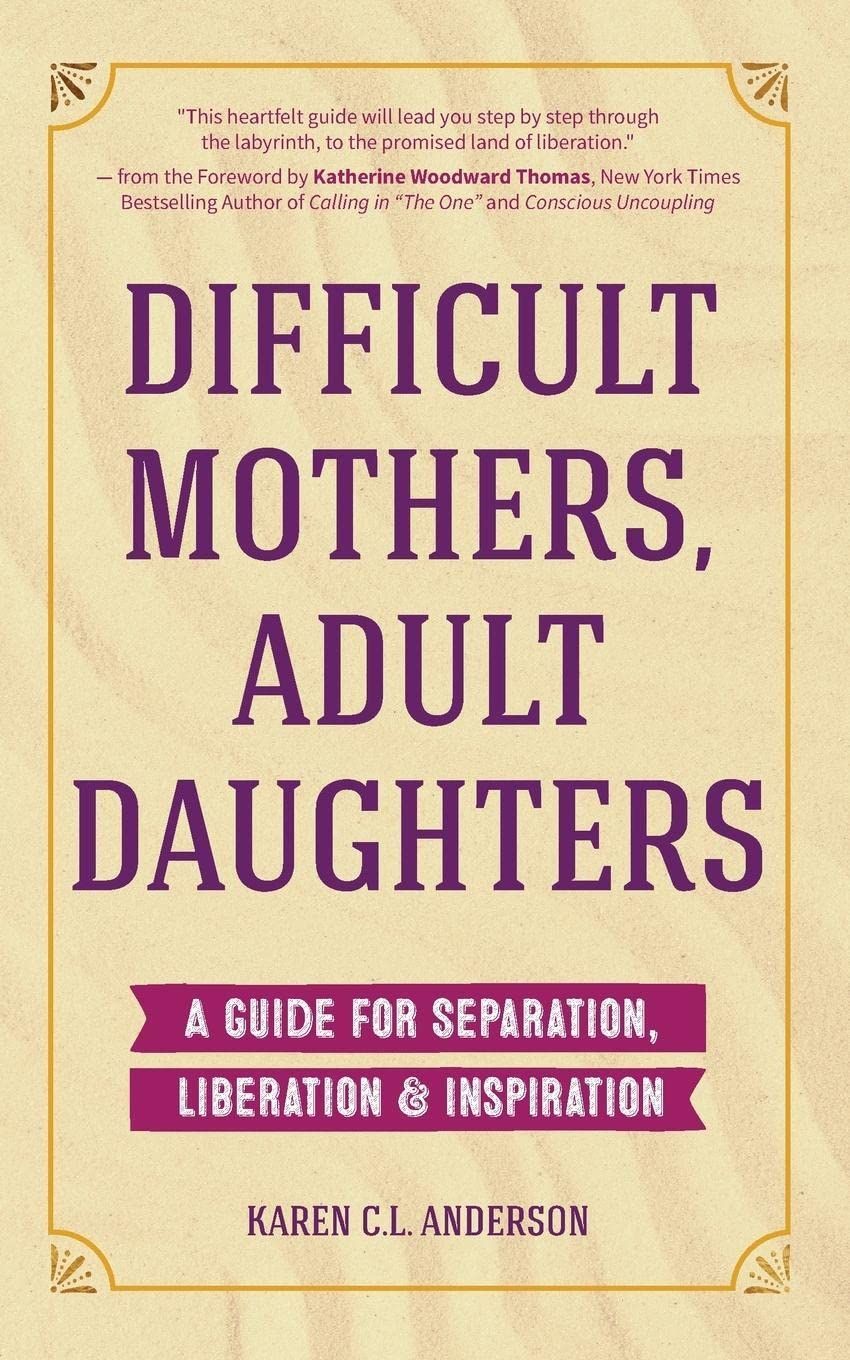If advertisements and social media posts are to be believed, Mother’s Day involves children everywhere showering their perfect moms with unabashed affection and considerate gifts. The reality, however, can be quite different for many adult children who have a strained relationship with their mother.
A 2022 study from the National Institute of Child Health and Human Development found that 6 percent of adult children are estranged from their mothers for some period with no contact at all. And that’s not accounting for the vast number of adult children who keep communication channels open, but find the relationship tense and difficult.
As we get older, numerous factors can cause relationships with maternal figures to buckle under pressure, according to New York-based clinical psychologist Afshan Mohamedali. “Most can be attributed to similar issues,” she says, pointing to disagreements in priorities and values; difficulty respecting the other’s decisions; unresolved mental health issues; intrusiveness and lack of boundaries; and persistent criticism and insufficient support.
“A mother might look for a confidant, a best friend, or a chance to experience what she hasn’t been able to for herself,” Mohamedali explains. “A daughter may want a more boundaried relationship and autonomy, a chance to make mistakes and turn to her mother for comfort.” When these ideologies clash, she says it “can culminate in needs being unmet and feeling disrespected, unseen, and lonely.”
There are no cookie-cutter guidelines for carving out a perfect relationship with your mother. What works for one pairing might not be so successful for another. However, a few basic elements can support a happy and lasting bond.
“Important elements in any healthy relationship are healthy boundaries, open communication, mutual respect, trust, and a willingness to understand the other person at each stage of their lives,” says Gifty G. Ampadu, an attending psychologist at Montefiore Health System. She adds it’s important to remember that “relationships are personal, and often our culture and values shape how we interact.”
Another vital factor is to recognize that as the years pass, you’ll both change as people — and the relationship will need to adjust to reflect that. In an ideal situation, Mohamedali believes that a mother should recognize the role she plays in her adult child’s life as evolving over time. Meanwhile, she says, a daughter should “grow to respect her mother’s lived experiences and learn from them as she moves forward in life.”
Mental health costs
While feeling stressed is common when caught in a tumultuous relationship with your mother, navigating choppy waters can also negatively impact well-being in other ways, including feelings of depression and anxiety. If an adult child believes themselves to be difficult or unlovable, Mohamedali says, this can lead to a “struggle to establish a healthy sense of self, [which] can lead to mental health issues.”
The effects don’t end there, according to Karen C.L. Anderson, a life coach and author of Difficult Mothers, Adult Daughters: A Guide for Separation, Liberation & Inspiration and the forthcoming You Are Not Your Mother: Releasing Generational Trauma and Shame. She says that those who encounter difficulties in the relationship with their mom can also experience:
- feelings of shame, guilt, and blame
- difficulty prioritizing themselves
- belief their desires and needs don’t matter
- a sense of being stuck and always underachieving
- fear of failure
- a persistent need for validation and approval
Estranged from your mother or find the relationship tricky? It doesn’t have to be permanent: 81 percent of estranged adult children ultimately reconcile in some way. “It is possible for an adult daughter … to reestablish contact with her mother in a healthy way,” says Anderson. These various approaches can assist in laying the groundwork to mend broken bonds and improve communication.
Reflect on feelings
Rather than diving straight in, ruminate on your feelings about your mom and the relationship to get your thoughts in order, suggests California-based clinical psychologist Annia Raja. She says that could involve thinking about “the past, what’s gotten in the way of meaningful connection up to now, or what you’re hoping for the future.” Raja suggests considering relational patterns, misunderstandings, or unresolved issues that may have contributed to the current sense of distance.
There are various ways to go about this reflection, says licensed professional counselor and Blissful Mind Behavioral Health owner Pamela Tippit. For example, she notes that “journaling is a great first step in taking the thoughts and feelings from your head and heart and getting them out.”
If you’d prefer to obtain feedback and perspective, consider talking with an unbiased person, such as a mental health therapist or counselor. “[This] will help you hold space for yourself and any big or small trauma the relationship has caused,” Tippit says, “and help prepare you to move forward and begin the work of repairing the relationship.”
Stop people-pleasing
If you’re constantly trying to fit into an ideal adult child mold and adjust your behaviors and words to please your mom, this can lead to resentment and anger and cause strain and tension in the relationship.
Recognize the importance of being yourself and doing things for you. “People-pleasing is a futile effort,” Tippit says. “It is not your job to be responsible for anyone else’s happiness. Yes, we can contribute to another person’s happiness, but how someone feels is their responsibility, not yours.”
Listen to your body
During arguments and tense situations, your fight-or-flight mode can kick in, so not only is your brain working overtime, but your body is as well. However, by becoming more aware of your stress responses, explains Anderson, you’ll be able to better manage them.
“Choosing to see your body’s responses as wise and intelligent introduces a sense of compassion and reduces shame and defensiveness,” Anderson says. “This will help you go from blindly reacting to being able to catch yourself sooner and choosing your response.”
Taking control doesn’t necessarily equate to being calm and surrendering, though. For instance, when standing up for yourself during a disagreement, Anderson says “it can mean wielding anger precisely and intentionally, not to harm but to protect.”
Be patient
Transitioning into adulthood entails a “desire to be more respected and treated like an equal,” says licensed clinical social worker and Aspen Relationship Institute co-founder Lori Kret. “Often, there is less awareness of the mother’s need to be able to still feel valued as a parent but also loved and cared for as a person.”
Sure, you can have high expectations of your parents and feel aggrieved when they don’t meet them. But it’s important to grieve the “idealized parent,” Kret explains, and “create space for the mother to be human with faults, flaws, and feelings.”
Demonstrating patience is key. “Working on repair in any relationship doesn’t happen overnight, so it’s important to be patient and consistent in your efforts,” Raja says. In addition to making sense of your thoughts and emotions, she adds, understand that there’s a good chance your mom is working through feelings of her own.
Set boundaries
To determine where to draw your lines, Raja recommends reflecting on elements of the relationship with your mom that have previously caused feelings of hurt, overwhelm, and disrespect. From there, she says to “use those insights to reflect on clear and specific boundaries and parameters for interaction that you may need to discuss.”
Setting boundaries might lead the other party to feel rejected and become angry. To help avoid this, Kret says, work to establish them in a loving and kind context. Rather than solely focusing on what you don’t want your mom to do, “spend time and effort acknowledging what you do appreciate, and reassure her of the value she has in your life,” she suggests.
“Healthy boundaries are not just about keeping out the bad, and they certainly aren’t about punishing your mother,” Anderson adds. “They’re about what you want to grow and cultivate in the relationship [and are] based on what you value.”
But what happens when boundaries are ignored? Rather than lashing out, Kret recommends “being curious and inviting conversation about what is occurring at an emotional level. For instance, ‘Mom, my perception is that I’m trying to set this boundary and am experiencing some resistance from you. Can you help me understand what you’re feeling?’” From there, you can explore how to address her feelings while still adhering to the boundary.
Meanwhile, Raja says that working on a relationship agreement together can be a good way to establish boundaries while “also encouraging mutual accountability through shared understanding.”
Consider your words
When broaching concerns with your mom, the way you communicate is critical. To get started, Raja suggests reaching out and sharing your desire to rebuild your connection. “Be genuine, forthright, and sincere in sharing your feelings with openness and vulnerability, alongside expressing concerns about what has gotten in the way before between you two,” she says.
Be mindful of how you frame sentences too. Rather than starting with “you,” focus on using “I” statements because they sound less accusatory and will reduce defensiveness.
“You might say, ‘I feel overwhelmed and scrutinized when you bring up my dating life every time we talk. I’d appreciate it if we could sometimes focus on lighter topics or share updates about our day instead,’” Raja advises. Also, remember that conversations are a two-way street, so Raja recommends listening “to your mom’s perspective with openness and curiosity.”
When should you disconnect?
Some adult children are able to reconcile and establish healthy relationships with their moms. For others, however, circumstances might mean it’s best to step back — even if just for a short period.
Tippit suggests reviewing how the relationship impacts your emotional bank account. In this case, the currency is your time, energy, and effort. “We often spend from the emotional account as if the funds are unlimited,” she says. “Often, when a lot [of emotional currency] has been spent, and we see there’s no return on that investment, it’s a good sign that reconciliation may need to be abandoned.”
Additional factors might need to be considered before you can make any moves. “Sometimes, cultural values and family expectations come into play,” Ampadu says. “These nuances and role expectations can make decisions around setting boundaries or cutting communications more complex.”
Whatever your situation looks like, remember you don’t have to go through it alone. Consider speaking with a professional. “Experts can help you process strong emotions,” Ampadu says, “[and] promote self-compassion and acceptance.”
Chantelle Pattemore is a London-based writer who has contributed to Men’s Fitness, Best Life, Women’s Health, and Reader’s Digest.
Get Shondaland directly in your inbox: SUBSCRIBE TODAY



















